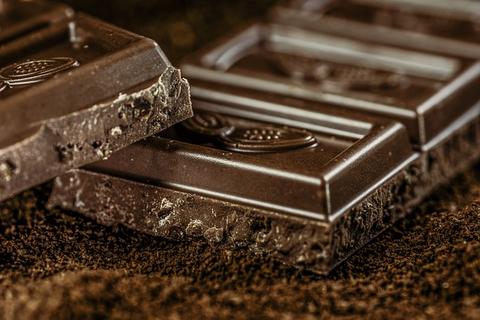Your Favorite Sinful Treat May Be Good For You
If you didn’t know this already, I’m a big supporter of chocolate.
Not the Hershey’s milk chocolate bars, mind you.
They’re loaded with way too much sugar and far too much dairy to be considered a healthy treat.
But the dark stuff. That’s where you’re going to get a ton of health benefits and that’s where I loudly and proudly declare myself a supporter of the sinful snack everyone should eat.
We’ve long known chocolate is loaded with antioxidants.
Those free-radical scavenging mechanisms are great for helping keep inflammation down.
Turns out, there might actually be even more to those antioxidants…
They could help improve your brain function.
In a recent study, it was discovered certain cocoa flavanols could boost cognitive function within just a few hours of consumption.
That means making the smart decision to eat chocolate could actually make you smarter. See how that works?
Now we’ve long known these flavanols will support brain health over the long run. How much exactly, we’re not quite sure.
But we’d never actually investigated how chocolate affects your brain in the short term.
So some Italian researchers wanted to figure out what exactly happens after you eat chocolate (the darker the better).
To come to this determination, these researchers looked at several studies associated with chocolate and brain health.
Their findings, which were published in the journal Frontiers in Nutrition, noted that while only a small handful of studies have been conducted on chocolate and short term memory, the ones we had showed that chocolate increased working brain function.
One study, for example, identified working memory improvements in young adults just 2 hours after consuming 773 milligrams of cocoa flavanols.
Then another study demonstrated eating chocolate (cocoa flavanols)appeared to offset cognitive impairment caused by a night of sleep deprivation.
And one of the most promising studies seemed to indicate the brains of seniors were positively affected by chocolate consumption.
“ The review suggests that a daily intake of cocoa flavanols – for at least 5 days and up to 3 months – posed the greatest benefits for cognitive function, leading to improvements in attention, processing speed, verbal fluency, and working memory.
Socci and team note that these benefits were strongest for elderly adults who already had mild cognitive decline or other memory impairments when the studies began – a finding that surprised the researchers.
“This result suggests the potential of cocoa flavanols to protect cognition in vulnerable populations over time by improving cognitive performance,” say Socci and co-author Michele Ferrara, also of the University of L’Aquila.”
The researchers believe the way chocolate helps the brain in the short-term is by increasing blood flow to the hippocampus. The higher the blood flow, the better the brain functions.
We also know there are nootropic, or brain-protective, benefits to some of the flavanols in chocolate, so those definitely help the brain function, but only long term.
They warn that no one should overdo it on chocolate since it’s high in sugar and calories.
I will add a caveat to that. If you’re eating 90% dark or above, it’s going to be hard to overdo it.
One – because it’s low in sugar, and two – because its taste is quite strong and somewhat bitter.
I still recommend it though, as once you’ve acquired the taste not only will enjoy the treat, knowing it’s good for you will amplify your enjoyment.
Talk soon,
Dr. Wiggy
www.HealthAsItOughtToBe.com

